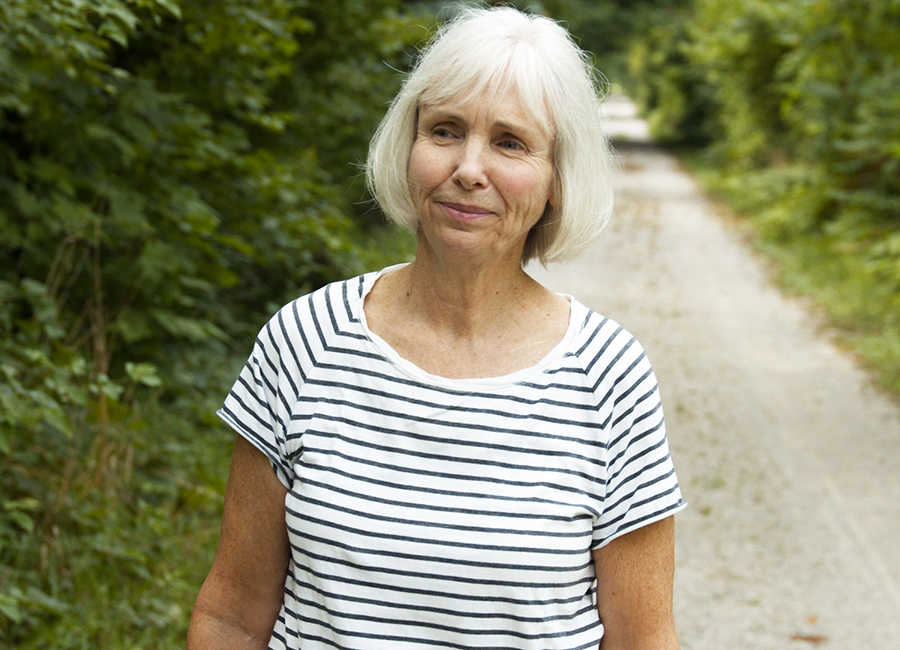Living With CLL: Finding Hope Through Self-Advocacy

SPONSORED CONTENT
Shelley knows all too well that life can change in an instant. Before being diagnosed with chronic lymphocytic leukemia (CLL), she played an active role in her community, was sending her kids off to university and working as a physiotherapist. The moment she received her diagnosis, her life changed forever.
Chronic lymphocytic leukemia is a type of blood cancer that begins in the bone marrow.i It is the most common form of leukemia in adults in Western countries,ii with over 2,200 Canadians diagnosed each year.iii
After diagnosis, Shelley suddenly faced challenges she had never considered before. She wasn’t responding to her initial treatment and her health declined. This forced her to take a leave from a job she loved, as well as pull back from her volunteer and family responsibilities. As Shelley’s CLL progressed, so did her anxiety about having cancer and her future. This mix of anxiety and lack of progress with her treatment led her to do her own research and take a more active role in her care.
The more Shelley knew, the less anxious she felt. Learning about her condition and her treatment plan helped her gain confidence in knowing she was getting the best care for her disease. It was important to Shelley that she be her own advocate and discuss with her doctor how effective they thought various treatments will be, and how long they thought she would have good effects from a treatment. She soon learned the importance of molecular testing – a tool that helps doctors determine what might be the right treatment option for each patient based on the type of CLL they have.iv

Shelley suggests it is best to have all the tests before starting treatment. That wasn’t possible in her case, but she is still grateful she learned about it when she did. She has been on a targeted therapy, is still on that treatment, and enjoying a good quality of life.
“I’m back to doing many of the activities I did before my diagnosis and have even taken up some new ones, including an evolving role as a grandmother,” says Shelley. “The family life we enjoy is very precious to my husband and I. There was a time a few years ago where I was worried I may not be here to enjoy this stage of life, but things have turned around, giving me hope for the future.”
Lymphoma Canada agrees there is reason for hope. They are a national organization committed to empower patients and the lymphoma community through education, support, advocacy, and research.
“For the many patients like Shelley who are living with CLL, knowledge can be power,” says Antonella Rizza, CEO of Lymphoma Canada. “The good news is there are treatment options that may help some patients live with this disease for many years. If you or a loved one has CLL, ask your doctor whether molecular testing is right for you and how it can help determine what treatment may be right for your specific type of CLL.”
For more information on molecular testing and treatments for CLL, visit Lymphoma.ca.
Watch the video below to learn more about Shelley and her story.
Sponsored by a member of Innovative Medicines Canada.
i The Leukemia and Lymphoma Society of Canada. “Chronic Lymphocytic Leukemia” Available online at: https://www.lls.org/leukemia/chronic-lymphocytic-leukemia?src1=20032&src2. Accessed September 2020.
ii The Leukemia and Lymphoma Society of Canada “Chronic Lymphocytic Leukemia” Available online at: https://www.lls.org/leukemia/chronic-lymphocytic-leukemia?src1=20032&src2. Accessed September 2020
iii Lymphoma Canada “About CLL & SLL” Available online at: https://www.lymphoma.ca/lymphoma/cll-sll/about-cll-sll/. Accessed September 2020
iv Lymphoma Canada. “Have CLL? Get Tested” Available online at: https://www.lymphoma.ca/wp-content/uploads/2010/05/lymphoma_infographic_4.2_en_1.pdf. Accessed September 2020.